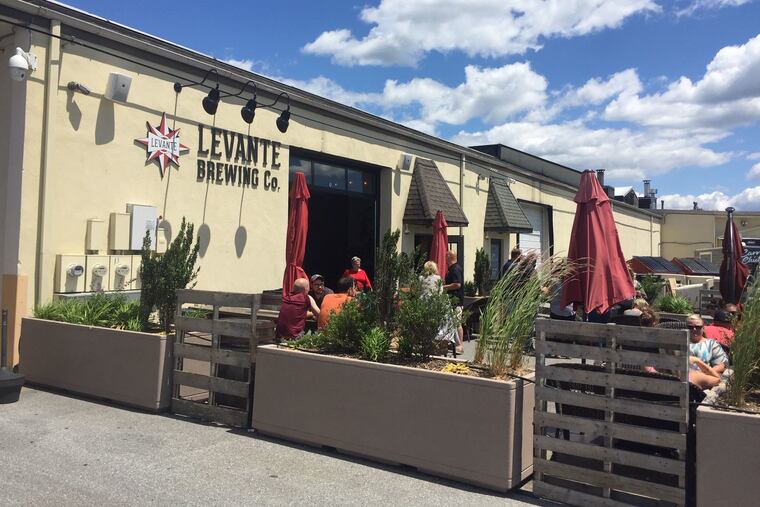Pennsylvania breweries might dodge sales tax bullet set to take effect on July 1
Without relief under a bill that passed the Pennsylvania House last week and is now under consideration in the Senate, Pennsylvania brewers will have to start charging sales tax on retail price of pints they sell in their taprooms.

Pennsylvania breweries would dodge a sales tax bullet set to take effect July 1 under a bill passed last week by the state House of Representatives.
The state Department of Revenue issued rules last year that would require breweries — which in 2015 obtained the right to sell pints directly to the public without having to purchase a brewpub or restaurant license — to charge sales tax on the retail price of pints sold for consumption in their taprooms.
Brewers said the tax would equal about four times that paid by restaurants and bars, which pay the state’s 6 percent tax on the wholesale price of goods from the Liquor Control Board or beer wholesalers.
The House bill was sponsored by Natalie Mihalek, a Republican who represents parts of Allegheny and Washington Counties. It would let breweries charge the sales tax on 25 percent of the retail price ― which would approximate the tax bars and restaurants pay on their wholesale purchases.
Keeping their fingers crossed that the proposal makes it through the Senate, a brewers trade association didn’t want to say much last week.
“The Brewers of Pennsylvania has worked closely with the governor’s office to craft a resolution which ensures breweries pay sales tax at fair rates like other retailers in the industry,” said Theodore J. Zeller, the trade group’s general counsel, who is also an attorney at Norris McLaughlin PA in Allentown.
On Friday, the bill was referred to the Senate Finance Committee, and a spokesperson for Senate Republicans said they would review the proposal. “We are in the midst of budget season, so all proposals such as this remain on the table for discussion,” Jennifer Kocher said.
When the LCB approved the regulation allowing brewers to sell pints directly to the public without a second license, there were no clear guidelines on sales tax. That meant some brewers were paying it and some weren’t, said Melissa Bova, vice president of government affairs for the Pennsylvania Restaurant and Lodging Association.
“We worked with the brewers on the change, primarily because we wanted to make sure there was at least some sort of a parity in terms of them remitting at least about the same amount of taxes we have to remit on the same types of products,” Bova said.
Here’s the math the brewers object to under the Revenue Department’s ruling, which was issued last July, with its implementation delayed from January to July by industry lobbying:
A half-barrel keg, the most common size in the United States, holds 124 pints of beer. If pints sell for $6 a piece, the total retail value is $744. Under the regulation set to take effect July 1, the taproom would have to charge $44.64 in total sales tax on the keg, or 36 cents per pint (more in Philadelphia, where the sales tax is 8 percent).
Under the proposal the House passed last week brewers would charge $11.16 in sales tax on the keg, or 9 cents per pint, about what restaurants and bars pay.
Chuck Moran, executive director of the Pennsylvania Licensed Beverage and Tavern Association, said the formula in the House bill is supposed to create a level playing field, though it’s not entirely clear if it does that for happy hours.
“With that said, it’s still complex, and probably can be simplified across the board with all licenses having the same formula," Moran said. “We really wish that as a next step the legislature would get all licensees using the same formula just to clear the muddiness.”
This article was corrected to say in the tax example that pints rather than kegs would sell for $6 each.